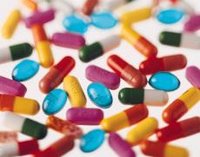Antibiotic

Contents
Introduction (Antibiotic)
U.S. Department of Agriculture
The U.S. Department of Agriculture's Food Safety and Inspection Service (FSIS) characterizes an Antibiotic as a chemical substance produced by microorganisms—or synthetically—that inhibit the growth of, or destroy, bacteria.
Rules guiding the use of veterinary drugs and medicated animal feeds, including tolerance levels for drug residues in meats for human consumption, are set by the Center for Veterinary Medicine of the Food and Drug Administration (FDA). The Food Safety and Inspection Service (FSIS) enforces the FDA rules through a sampling and testing program that is part of its overall meat and poultry inspection program.
National Library of Medicine
Antibiotics are powerful medicines that fight bacterial infections. Used properly, antibiotics can save lives. They either kill bacteria or keep them from reproducing. Your body's natural defenses can usually take it from there.
Antibiotics do not fight infections caused by viruses, such as
- Colds;
- Flu;
- Most coughs and bronchitis; and
- Sore throats, unless caused by strep.
If a virus is making you sick, taking antibiotics may do more harm than good. Each time you take antibiotics, you increase the chances that bacteria in your body will be able to resist them. Later, you could get or spread an infection that those antibiotics cannot cure.
When you take antibiotics, follow the directions carefully. It is important to finish your medicine even if you feel better. Do not save antibiotics for later or use someone else's prescription.
Further Reading
- National Library of Medicine - Information on Antibiotics
- Centers for Disease Control and Prevention - Antibiotic / Antimicrobial Resistance Glossary
- Union of Concerned Scientists on The Food and Drug Administration's Approach to Antibiotic Regulation.
- The Food and Drug Administration's Center for Veterinary Medicine